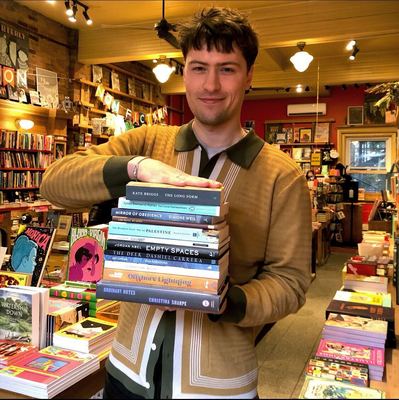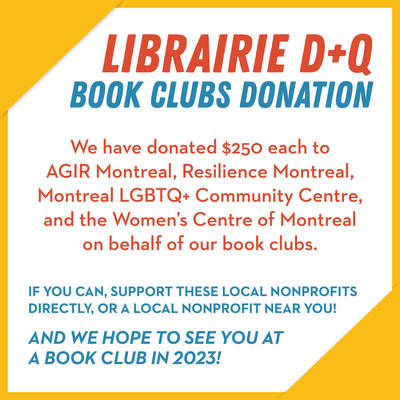Staff Picks 2018: Saelan
December 6, 2018
When I started putting this list together, I realized something striking: I've read very few novels, short stories, or poetry books this year. So, while I could still recommend plenty of fiction/poetry titles that I either have read or that I'm eager to read, I'm actually going to leave that task to my very capable coworkers and stick to what I spent the most time reading: memoir, autofiction, non-fiction, philosophy, criticism, and comics.
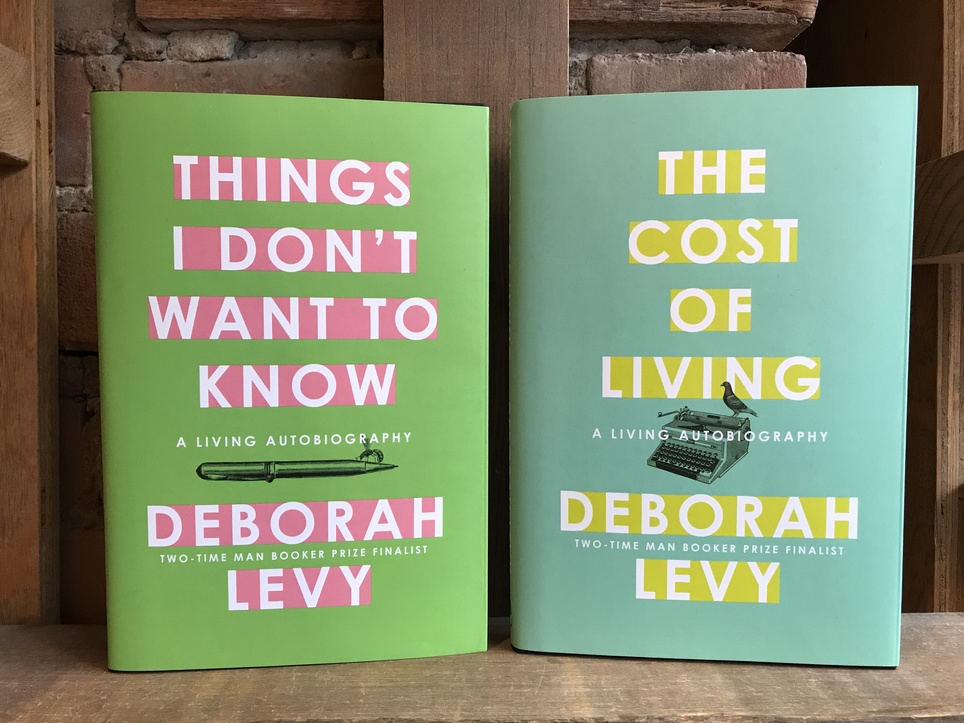
Deborah Levy was the discovery of the year for me. The Cost of Living is the follow-up to 2013's Things I Don't Want to Know (which was reissued to coincide with the release of the former), both of which are part of a planned autobiographical trilogy about the writing life. They are simply phenomenal and I've become evangelical about Levy since reading them (along with her equally-excellent Booker Prize-nominated novel, Hot Milk).
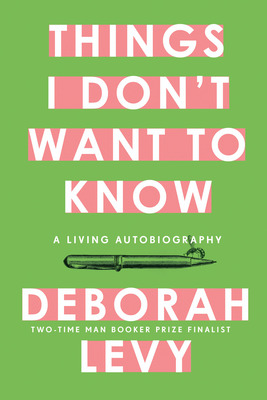
Things I Don't Want to Know
Deborah Levy
A luminescent treatise on writing, love, and loss, a witty response to George Orwell's influential essay "Why I Write" Things I Don't Want to...
More Info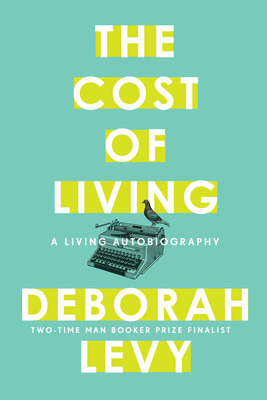
The Cost of Living
Deborah Levy
Longlisted for the 2019 Andrew Carnegie Medal for Excellence in NonfictionFrom the twice-Booker-shortlisted author comes a witty and audacious examination of writing and womanhood"Life falls...
More Info
Returning to Reims
Didier Eribon
A deeply intelligent and searching book, one that makes you re-consider the narrative of your own life and reframe the story you tell yourself'...
More InfoI was equally taken with Didier Eribon's wonderful Returning to Reims (initially published in French several years ago and reissued this year by Allen Lane), a memoir that recounts the celebrated queer theorist's return to his working-class roots that is actually, even mostly, about the rightward shift of the working-class population of France -- a topic that resonates worldwide.
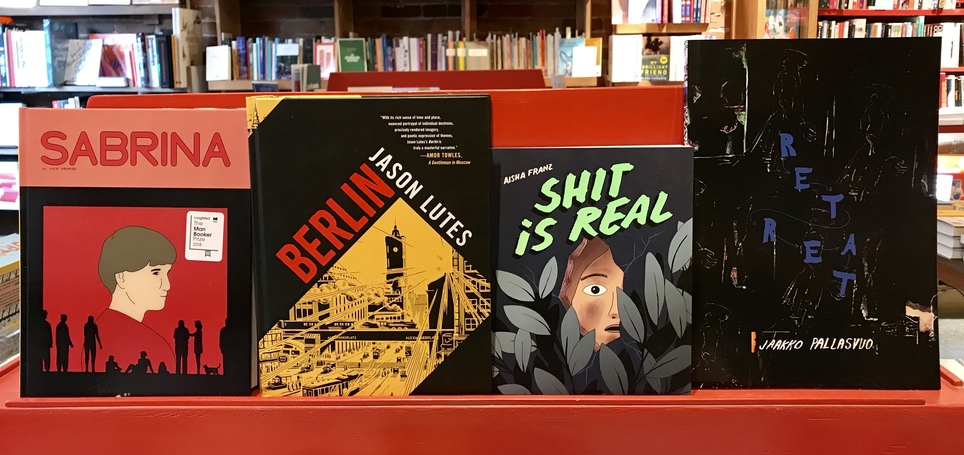
Drawn and Quarterly had a truly banner year in 2018, with a Booker Prize nomination (the first-ever for a graphic novel) for Sabrina, Nick Drnaso's masterful, eerily affectless dissection of America's conspiracy-ridden, post-truth mediascape. D&Q also put out the complete version of Jason Lutes' stunning Berlin, a project that took 20 years to complete and yet couldn't be more timely right now, with its propulsive, character-driven examination of the rise of Nazism. Aisha Franz's Shit is Real is also a whimsical, pitch-perfect portrait of a 20-something girl adrift in a surealist, near-future Berlin. Beyond D&Q, Jaakko Pallasvuo's Retreat finally came out (via 2dcloud) after a series of delays. It's my favourite comic book of his (which is saying something, since I adore him). It's also the first book I've ever blurbed, so read my more detailed endorsement right on the book jacket, if you like.
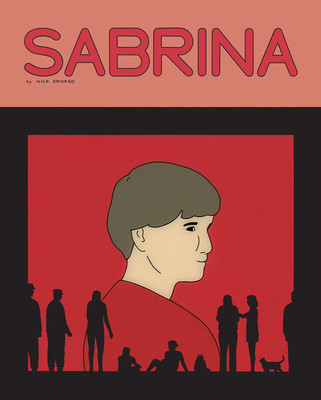
Sabrina
Nick Drnaso
Video games, conspiracy theories, breakdown, murder: Everything's gonna be all right - until it isn't How many hours of sleep did you get last...
More Info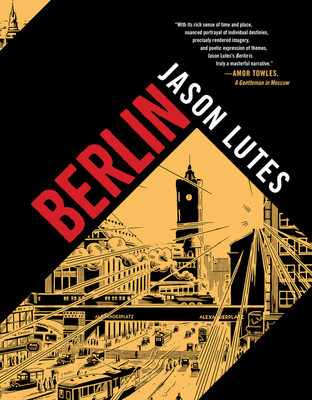
Berlin
Jason Lutes
Twenty years in the making, this sweeping masterpiece charts Berlin through the rise of Nazism During the past two decades, Jason Lutes has quietly...
More Info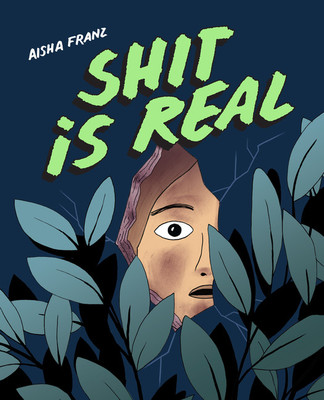
Shit Is Real
Aisha Franz
A broken-hearted woman drifts into depression as she occupies her traveling neighbor's apartment After an unexpected breakup, a young woman named Selma experiences...
More Info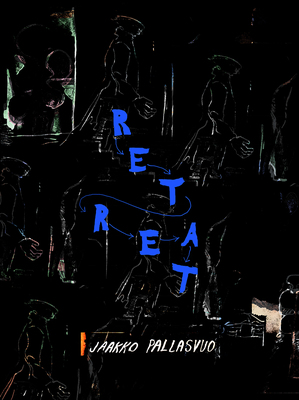
Retreat
Jaakko Pallasvuo
A gay couple flees the city from the impending apocalypse. They meet another artist on the way and their hopes and plans transform unpredictably.Finnish...
More Info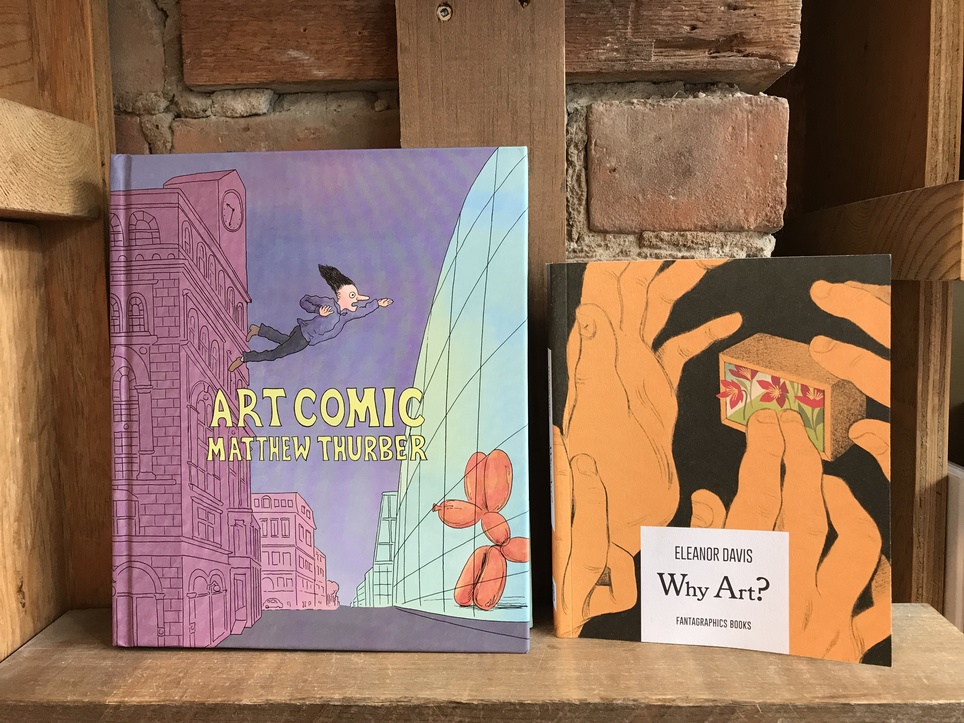
And that's not even all of D&Q's great titles this year! We also released Matthew Thurber's Art Comic, which can't avoid comparison to Walter Scott's Wendy (even in its own pages!) but is a much zanier, more absurdist satire of the art world, bursting with irrepressible energy. Eleanor Davis' Why Art? (from Fantagraphics) has less to do with "contemporary art" or even "comics" per se -- it's about the human drive to create (full stop) and it's lyrical and beautiful and great.
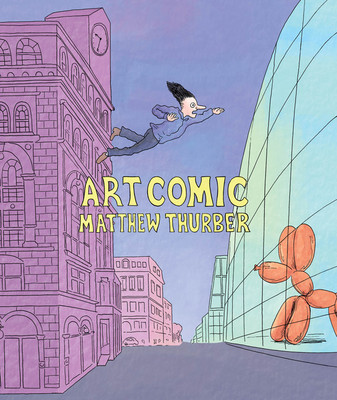
Art Comic
Matthew Thurber
A raucous skewering of the art world as told by a master of absurdity Matthew Thurber's Art Comic is a blunt and hilarious assault...
More Info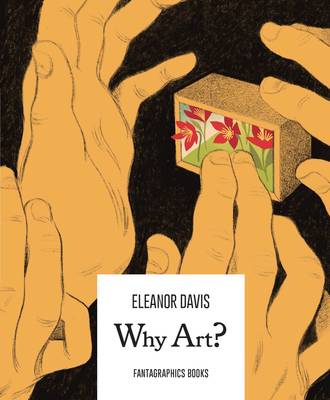
Why Art?
Eleanor Davis
What is “Art”? It’s widely accepted that art serves an important function in society. But the concept falls under such an absurdly large umbrella...
More Info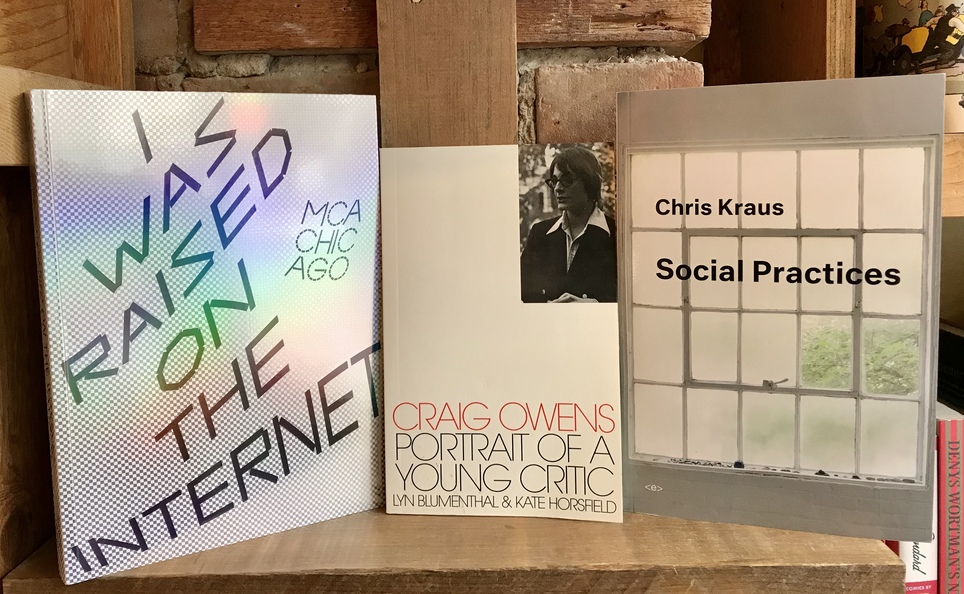
In terms of art criticism proper, I was hugely impressed by Craig Owens: Portrait of a Young Art Critic, which is actually just a straight transcription of a 1984 video interview with the pioneering critic and editor, though I'm hard-pressed to think of any recent book from which a person could learn more about art criticism. The exhibition catalogue for MCA Chicago's I Was Raised on the Internet is full of heavy-hitters and might be the last (or at least latest) word on post-internet art, such as it was. Chris Kraus' latest collection of personal and critical essays is also (unsurprisingly) fantastic.
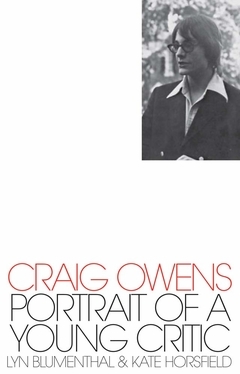
Craig Owens: Portrait of a Young Critic
Craig Owens, Lyn Blumenthal, Kate Horsfield
In 1984, the art critic and theorist Craig Owens (1950–90) gave a wide-ranging interview with Lyn Blumenthal and Kate Horsfield for their extraordinary video...
More Info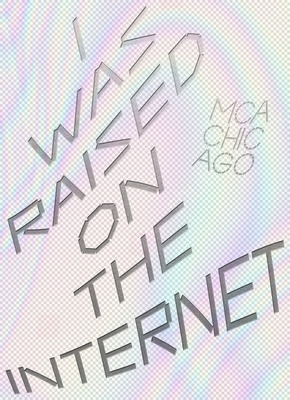
I Was Raised on the Internet
Omar Kholeif
Coinciding with a major exhibition at the Museum of Contemporary Art Chicago, this anthology of essays and reflections casts a discursive and critical light...
More Info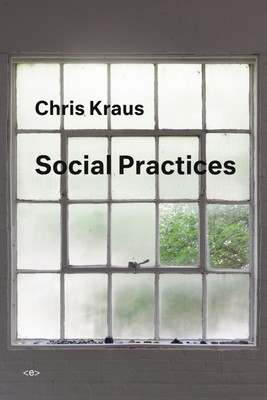
Social Practices
Chris Kraus
Essays on and around art and art practices by the author of I Love Dick.A border isn't a metaphor. Knowing each other for over...
More Info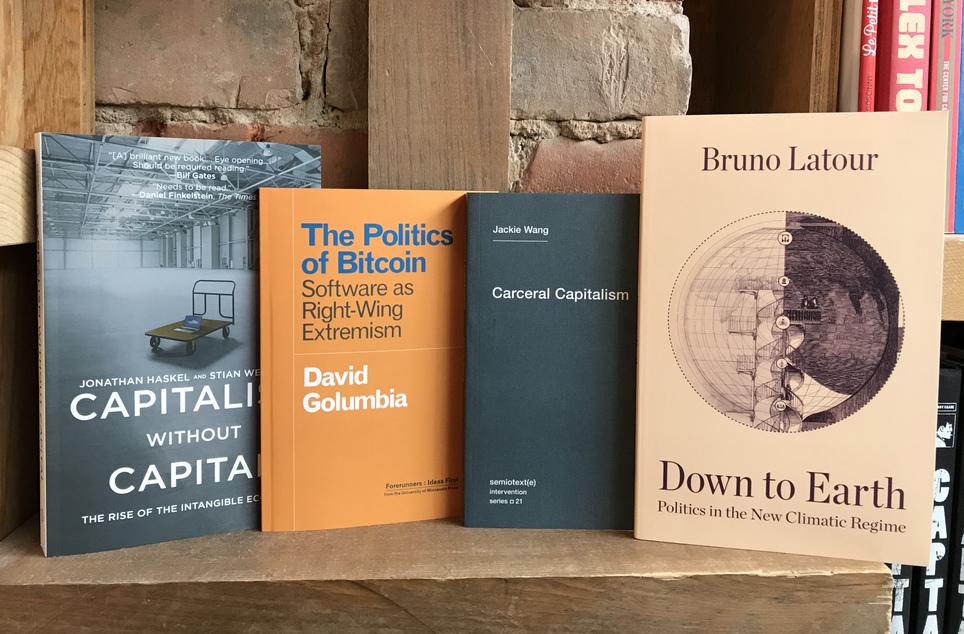
And here's my heavy reading! Capitalism without Capital rivals Piketty's Capital in the 21st Century (though it's less comprehensive) in terms of redefining capitalism for our era, in which the major developed countries are investing more in "intangible" assets (design, branding, software, etc.) than in tangible assets like machinery, buildings, and computers; David Golumbia's The Politics of Bitcoin (actually released in 2016) describes the pervasive (yet often invisible) influence of far-right conspiracy theory around the discourse of cryptocurrencies and the blockchain; Jackie Wang's Carceral Capitalism is a wide-ranging critical examination of the political economy of mass incarceration in the USA; and the latest book from French philosopher Bruno Latour is a plea to rethink politics (in the wake of climate crisis) as what "leads toward the Earth and not toward the global or the national."
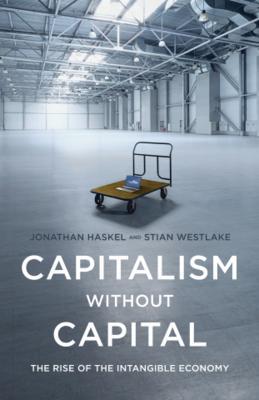
Capitalism Without Capital
Jonathan Haskel and Stian Westlake
Early in the twenty-first century, a quiet revolution occurred. For the first time, the major developed economies began to invest more in intangible assets,...
More Info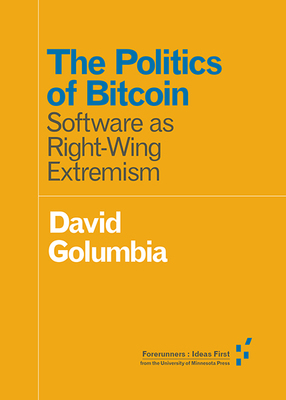
The Politics of Bitcoin: Software as Right-Wing Extremism
David Golumbia
The first comprehensive account of Bitcoin’s underlying right-wing politics Since its introduction in 2009, Bitcoin has been widely promoted as a digital currency that...
More Info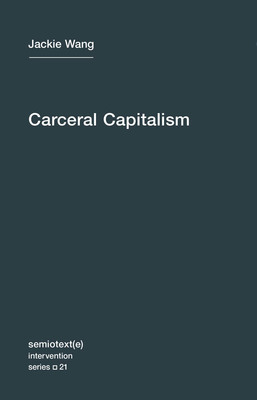
Carceral Capitalism
Jackie Wang
Essays on the contemporary continuum of incarceration: the biopolitics of juvenile delinquency, predatory policing, the political economy of fees and fines, and algorithmic policing.What...
More Info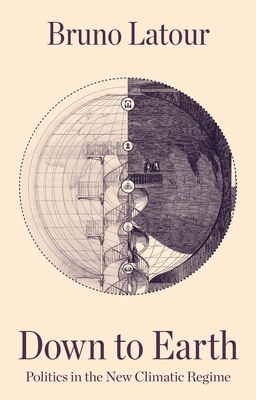
Down to Earth
Bruno Latour
The present ecological mutation has organized the whole political landscape for the last thirty years. This could explain the deadly cocktail of exploding inequalities,...
More Info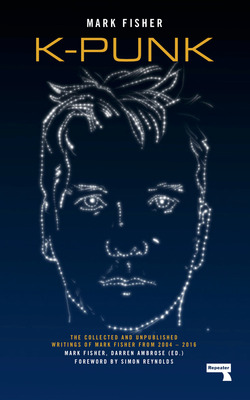
K-punk
Mark Fisher
A comprehensive collection of the writings of Mark Fisher (1968-2017), whose work defined critical writing for a generation.This comprehensive collection brings together the work...
More Info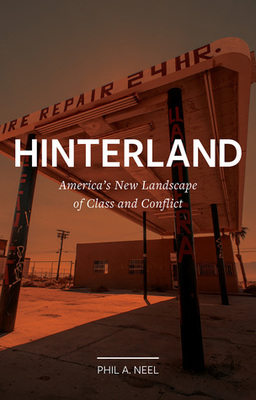
Hinterland: America's New Landscape of Class and Conflict
Phil A. Neel
Over the last forty years, the human landscape of the United States has been fundamentally transformed. The metamorphosis is partially visible in the ascendance...
More InfoAnother crucial title that I'm very eager to read is Phil Neel's Hinterland, a work of social science, political economy, and memoir that looks at the politics of non-metropolitan America. Drawing on Neel's direct experience of recent popular unrest, from the Occupy movement to the wave of riots and blockades that began in Ferguson, Missouri, this book provides a close-up view of this landscape in all its grim but captivating detail.
